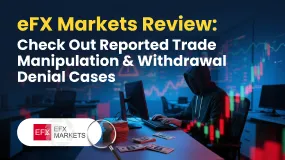Abstract:A 51-year-old salesman lost RM904,000 after being deceived by an online stock investment scam that he discovered through Facebook.

A 51-year-old salesman lost RM904,000 after being deceived by an online stock investment scam that he discovered through Facebook. The incident occurred over the course of several months, starting in April, and involved a series of transactions based on false promises of lucrative returns.
According to Perak police chief Datuk Seri Mohd Yusri Hassan Basri, the police received a report from the victim yesterday, detailing the events leading to the financial loss. The initial encounter began on April 15, when the salesman came across an investment advertisement while browsing Facebook at home. Intrigued by the potential for high returns, he clicked on the advertisement's link, which led him to initiate contact with a woman through WhatsApp.
The scam escalated quickly as the victim was convinced to deposit substantial sums of money into two separate bank accounts under the names of different companies. These transactions took place on May 1 and May 12, amounting to a total of RM904,000. However, as time passed and the promised returns failed to materialize, the victim grew suspicious. Realizing he had been deceived, he reported the incident to the authorities.

The case is currently being investigated under Section 420 of the Penal Code, which deals with cheating and dishonestly inducing the delivery of property. The law provides for severe penalties, including imprisonment for up to ten years, caning, and fines, for those found guilty of fraudulent activities.
Mohd Yusri emphasized that scams like these have become increasingly common, particularly through social media platforms such as Facebook. Many scammers lure unsuspecting individuals with advertisements promising easy money through investments in stocks, foreign exchange, or other financial schemes. Victims are often drawn in by the perceived legitimacy of the offers, which are carefully crafted to appear professional and trustworthy.
This case serves as yet another reminder of the importance of exercising caution when engaging with online investment opportunities, particularly those that appear too good to be true. Authorities continue to urge the public to verify the authenticity of any investment platform or company before committing any funds. They also advise individuals to be wary of unsolicited messages and to avoid sharing personal or financial information with unknown entities.
As the investigation progresses, the police are working to track down the individuals involved in the scam and recover the stolen funds. However, the likelihood of recovering the full amount remains uncertain, given the complex and often untraceable nature of online fraud schemes.











